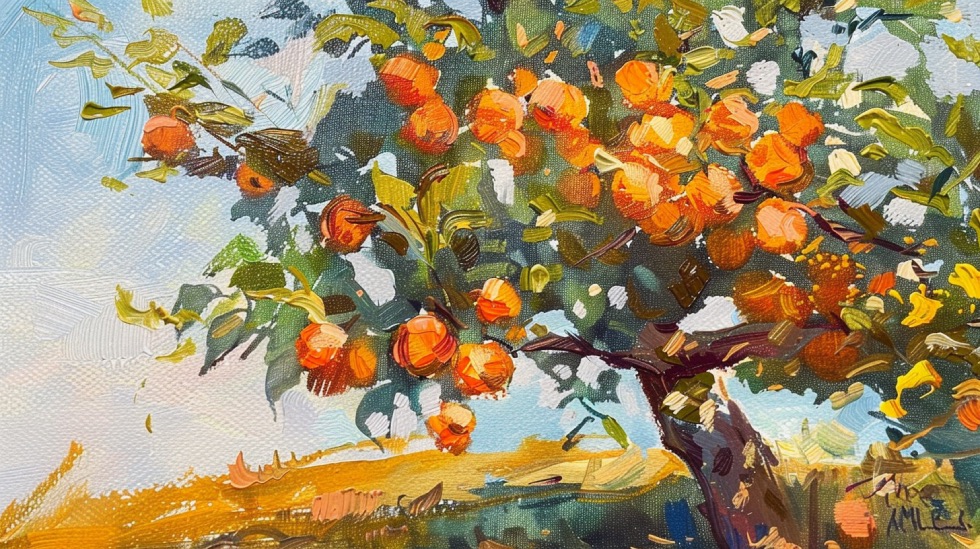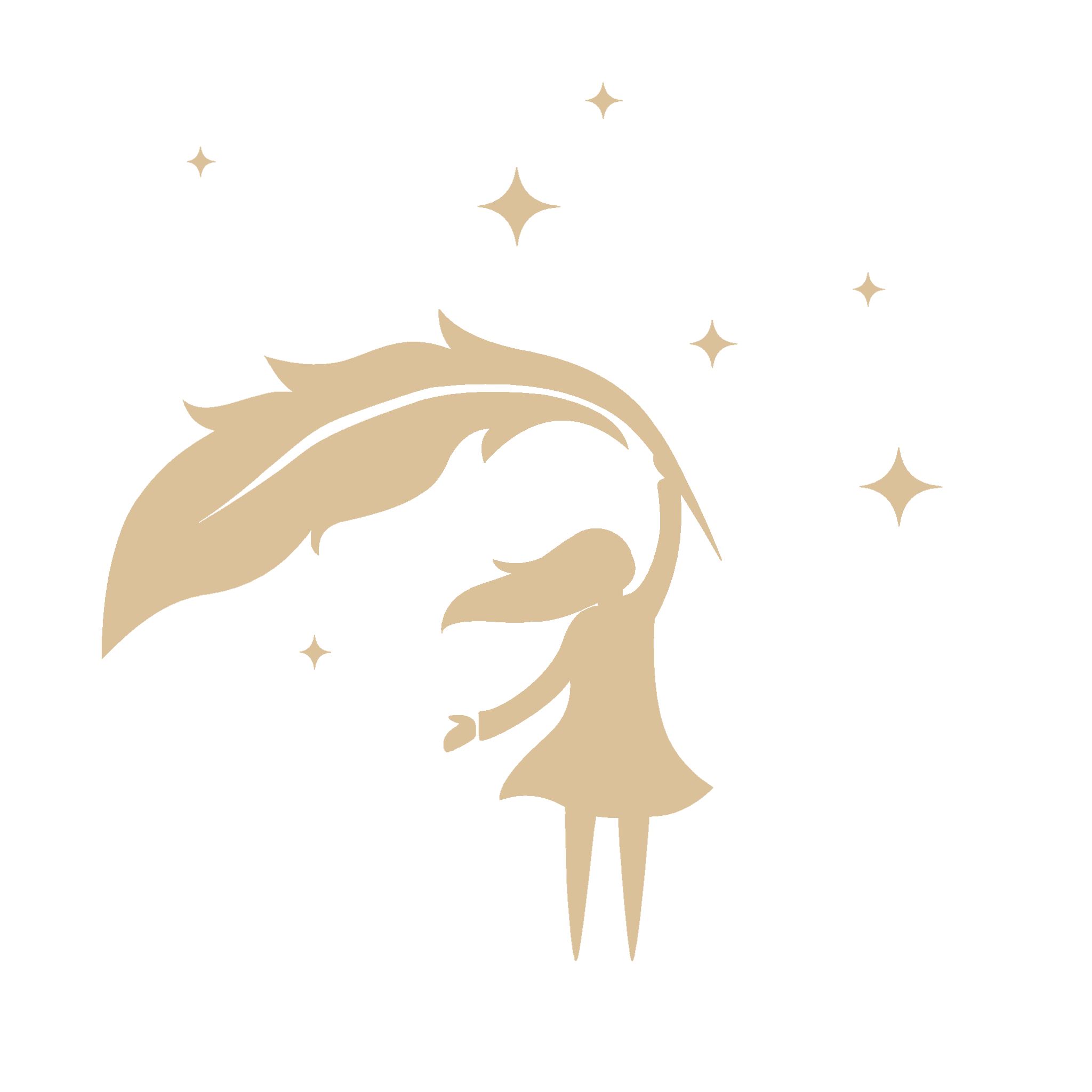
The apricot pits
On sunny spring day, when my grandfather, whom I dearly called «Ata», swept
all the apricot pits that were drying on a window sill.
– What are going to do with them, Ata? – I asked curiously.
– Come along with me, Balam, and I’ll show you, – said he in his mild manner,
smiling up the veranda we were in.
I put on my light, colorful jacket, a cap, as mother always instructed me and
went outdoors to join my old, yet swift grandfather. The garden gate was securely guarded by our stern looking cat named Hodja. “Come here, botam”, was Ata’s voice calling me a “baby camel” in his habitual manner. All the grandchildren of our household, including me were baby camels, fowls, calves, lambs, kids and chickens from time to time. Only when we did something bad, like stealing apples from our neighbour’s garden or throwing stones at chasing dogs, our names were pronounced as they are. After petting the old furry red cat that swirled back and forth, enjoying the sun warmth, I rushed to my busy grandfather.
– Here you go, take these, – said he, pouring a handful of dried apricot pits in
my palms. – That shall be enough. The rest we’ll leave for your grandmother’s
apricot jam.
– She says only fresh ones will do, – I replied, shaking the dangling seeds in my
hands.
– Oh! That’s right, you boy, I nearly forgot! Then, we’ll plant them all.
A heavy, wide trapezoid blade with the small hole in it, fixed to the long
wooden stick – the gardening instrument we called “ketmen” was lifting and mixing the upper layers of soil gently following the skinny hands of my grandfather.
– Done! – exclaimed he after a while, feeling very much proud of fresh
looking, moist soil with the long narrow lines in it. – Now, let’s see if you’ve got a
light hand!
– What do you mean?, I asked curiously. – the light hand thing.
– If the seeds sprout – we’ll say, you have a light hand, – he squinted his long eyes, hidden by heavy wrinkles, falling from eyebrows.
– What if not?
– Hm…, – Ata contemplated, – then we’ll try more and more, until you get it.
–Are there people, who never get it? The ones with a “heavy” hand?, – I asked.
– Oh, yes…, – his brows turned into sharp triangles. – senseless ones and
robots, perhaps.
– Robots?, I laughed with my mouth wide open, ‘connecting two handles of a
couldron with a smile’ as my grandma called it. Chilly air entered my throat through big corridors of absent teeth. Grandpa laughed heartily with me. One thing made us very alike – both of us were toothless.
– I doubt, robots will ever have a ‘light’ hand, – Ata replied joyously. – They
are soulless, aren’t they?
Cautioned with the noise we made in the garden, Hodja ran up to the frontline
of the main scene. He was the real boss here and, therefore, needed to control what was going on. Looking at him, I recollected how scared we were with my brother and sister, running away from a mad dog. This time it was a big shepherd hound that took off its household, running the streets with an iron chain on. Gladly we saw a short fence of our neighbor’s house and ran towards it. First, we lifted our sister over the fence, throwing her like a sack of potatoes, then we did same ourselves. The dog barked leaving us alone. We waited there awhile, grazing on bushes of ripe raspberry and the moment we were climbing the fence, we got busted! If it wasn’t for our chubby, cry-baby sister, we could have escaped right in time. The neighbour, who worked as a local postman, was furious. His first thought was we ruined his garden and ate up all the raspberries. Only one of the two things was right. Grandma promised to punish us, speaking in an unnatural, strict voice, promising at least hundred of bloody lashes. Satisfied mean neighbour was offered grandma’s deepest apologies and Ata’s souvenir pen knife “Baki”. This blazer sharp piece of steel with beautifully carved ivory handle was an old time present from Ata’s friend, living somewhere far, in one famous valley. Needless to say, how guilty I felt. Me, not we, for it was my idea to bother the sleeping dog with the stick. I felt terrible inside and with tears on my eyes I promised Ata never to touch any stray dog or any other animal. He comforted me softly, saying “it was a good lesson, Balam, wasn’t it”. Then, he said that it’s not them we owe our apologies, but the dog. “Imagine the life of a poor lad! His chain allows him to experience only one square meter of life! Didn’t it (he actually said “he”) deserve a proper, wholesome sleep stretching out his body in freedom”. To my regrets about his souvenir pen-knife that he never had a chance to use, he said: “I don’t like fancy things, you know. My twenty-five year old wooden pen-knife, I carry with me, serves perfectly well. It waited its master and finally found it”. His sincere smile assured me that, indeed, he was glad to let it go.
“Fancy things create temptations. Once you have one, there will be plenty of others, who’d wish to have the same”, his eyes glanced wittily.
– Ata, what is fear?, I asked loudly, while accurately dropping the pits on the
distance of my palm. The reason I needed to raise this question was that damn
incident of yesterday that hadn’t completely left me. I needed to find a culprit.
– The fear is…hmm…, – grandpa dived into his thought silently. – It’s what you
hold in your hands.
– The apricot pit?, I asked doubting Ata’s sanity.
– Its shell, to be precise, – he smiled. – The hard nut shell protecting the seed,
hence you.
–No, Ata, – I said louder, – you must have not heard me properly. I asked what
the f-e-a-r is, f-e-a-r?
– I heard it perfectly well, balam, – he laughed kindly showing his toothless
mouth. – It is the n-u-t-s-h-e-l-l. If you think of life, you, me and Hodja are, in a form of a seed, this apricot seed, – he shook one pit, holding it with a thumb and an index finger, then the hard shell protecting it is the fear.
– Ok…, I said turning sad and hopeless to hear proper explanation.
– It serves as a guarding shield, especially, when we are most vulnerable and
haven’t experienced life. Once there is time to expand and explore what’s up on the surface, the shell must gradually fall off, letting the seed sprout and live its own life.
– I still don’t get it, – I said convinced in my own truth.
– You’ll get it, when you come check them a year later. Very few of them, it
will be great if one, will sprout. The rest will remain sleeping in their shells. The soil is one for all, so we can’t blame it, right? We all are like these apricot seeds, with the potential to become a fruit-bearing tree some day. But that’s a long and uneasy journey. It’s risky and full of adversities or adventures, as you wish to see them. Once you break through your fears, let them loose once they proved their service, you start a new life of your own. You begin as a sprout, tender, gentle, fragile sprout that can be hit by drought, freeze, flood or myriad of other things. Even Hodja could endanger them, you know, – he laughed heartily again. I melted, looking at his face and clapping my hands off dirt.
– It takes tremendous effort and energy for a small sprout to grow into a fruit
bearing tree, – Ata continued. – As a sprout any minor thing, like weather change, can kill it. Growing little bit bigger, there are insects and rodents of all kinds, thus, problems keep arising. But if you are a caring gardener, you try your best to nourish the roots, refresh the soil from time to time, water your tree plentifully, cut the dry branches, protect it from pests, then there is a good chance your tree will bear juicy, colorful apricots one day.
– Why, then, only few of them sprout? Aren’t the conditions same for every
one?, I asked with a smart look on my face.
Ata cuddled my plume like hair, saying:
– Because they don’t break through shell. They don’t try hard enough to get rid
of it. They hesitate to see the real life. What they don’t know is that it’s not only
rodents, extreme colds and pests they are not going to see, but also the heavenly singing of the birds, the colors of a rainbow, the smell of rain, the whiteness of snow, the blueness of sky, even the pinky little flowers on their branches, and, of course, the apricots themselves.
– What if they do break the shell and die not seeing the ‘butaq’ (branches) and
‘orik’ (apricots)? What if pests or heavy rain, or Hodja destroy them?
Ata rubbed his palms vigorously, showing how happy he was to hear that
question. His eyes shone with brilliant light, he got in times of excitement, so he
whispered:
– That’s the beauty of life! You never know, until you experience it.
P.S. Never take a knife as present, buy or sell it
«The happiest people»
Gathering one summer day red current grapes into big woven baskets, I asked
my grandpa:
– Ata, who are the happiest people in life?
Plucking the little plump beads from tiny branches, he answered:
–Nomads must be.
–Why them? And who are these ‘n-o-m-a-d-s’?, – I hurried to ask back eagerly.
– Nomads – are eternal travelers. People, who never settle. Just like our ancestors did, moving from one place to the other. Or the gypsies, you know.
Who the gypsies were I knew well. There were many of them begging on the
streets of busy bazaar streets. They certainly did not seem to be the happiest cast.
– I don’t think you got my question, Ata. I mean – happy, hence, joyous, the
ones who have all they want and can do whatever they wish.
– I ain’t that deaf yet, Balam, – calmly smiled my grandpa, squinting his long
eyes mysteriously. – What you think as «happy» doesn’t necessarily mean that for everybody. Once you get all you want and freedom to be as you wish – life’ll get boring. That is a never satiating thirst.
– No, Ata, if I have all I wish, I’ll be the happiest person in the world!
– That feeling fades the moment you touch that, – he smiled, turning his dark
face to the sun.
– Why then nomads and those…how you called them, are happy people?
– Well…a true nomad doesn’t hold on to things. Be it gypsy, dervish or just a
wondering soul, as long as you learn to be free in spirit, no earthly joy can equate to it.
– I still don’t get it, Ata, – said I, finding my way through thoughts. – Being that
‘n-o-m-a-d’ as you say, seems to be a miserable way of life. Lonely and
uncomfortable. Or do they have companions?
Ata laughed with his childlike toothless mouth.
– Sometimes, loneliness is the best companion and simplicity is the best
comfort. But to know that you have to find yourself in different companies and enjoy the best of comforts.


